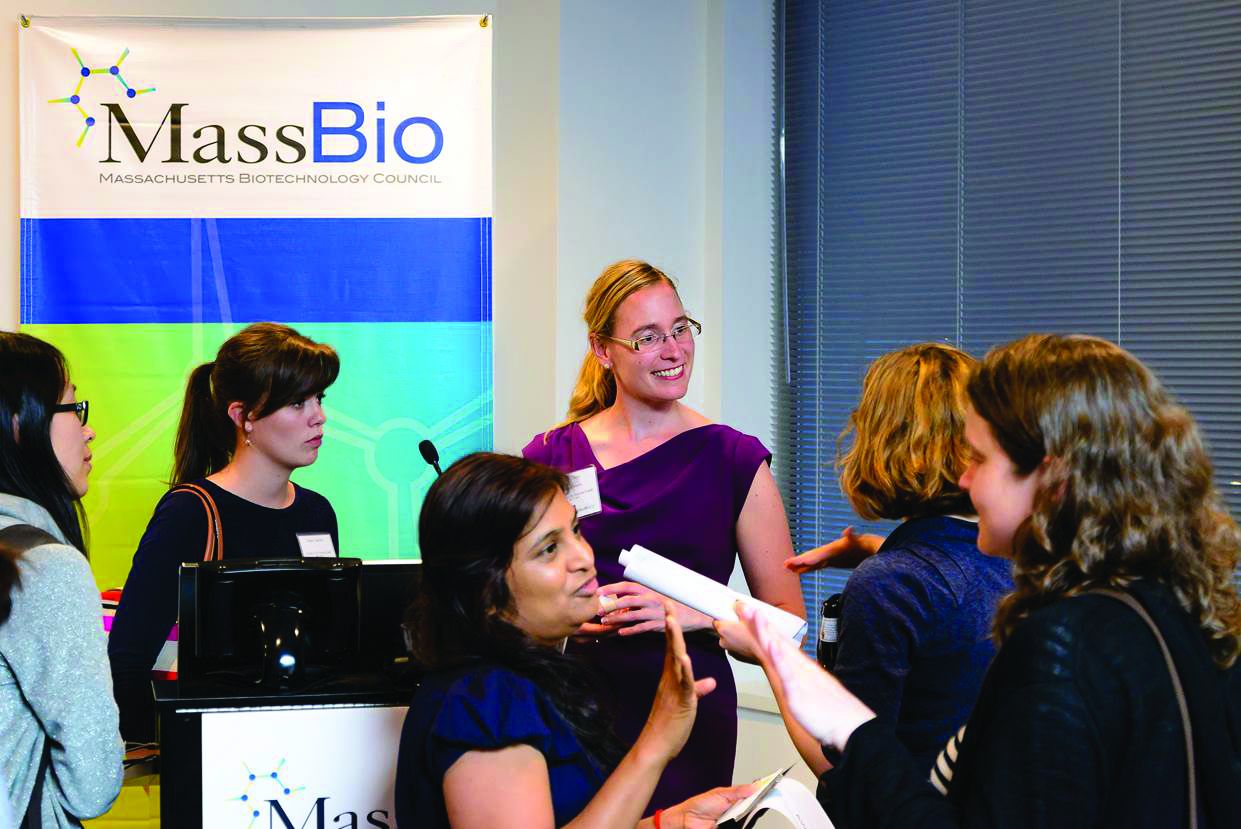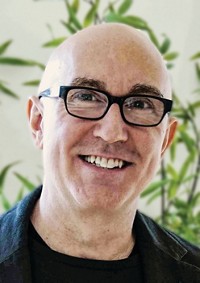Advertisement
Grab your lab coat. Let's get started
Welcome!
Welcome!
Create an account below to get 6 C&EN articles per month, receive newsletters and more - all free.
It seems this is your first time logging in online. Please enter the following information to continue.
As an ACS member you automatically get access to this site. All we need is few more details to create your reading experience.
Not you? Sign in with a different account.
Not you? Sign in with a different account.
ERROR 1
ERROR 1
ERROR 2
ERROR 2
ERROR 2
ERROR 2
ERROR 2
Password and Confirm password must match.
If you have an ACS member number, please enter it here so we can link this account to your membership. (optional)
ERROR 2
ACS values your privacy. By submitting your information, you are gaining access to C&EN and subscribing to our weekly newsletter. We use the information you provide to make your reading experience better, and we will never sell your data to third party members.
Business
Chemical Biology: Adventure Awaits
In the interdisciplinary field, researchers are defined more by their mind-sets than skill sets
by Corinne A. Marasco
April 17, 2006
| A version of this story appeared in
Volume 84, Issue 16

Chemical biology could easily be called "the ultimate team sport." It is a highly interdisciplinary field that requires chemists and biologists to pool their skills and knowledge to maximize their ability to solve interesting and important problems; however, defining how chemical biology differs from fields such as biochemistry, biology, molecular biology, or medicinal chemistry depends on whom you ask.


Those working in the area readily acknowledge that there are many ways to define "chemical biology." In its broadest sense, chemical biology applies chemical tools and ideas to biological problems or uses biology to inspire the development of new chemistry.
"I think about chemical biology as asking and addressing biological questions using chemical thinking," says Laura L. Kiessling, professor of chemistry and biochemistry at the University of Wisconsin, Madison. She is also the editor-in-chief of the American Chemical Society's newest journal, ACS Chemical Biology. "Chemical biology is less directed toward understanding nature; it involves exploiting chemical principles to manipulate biological components or systems." she says. "Chemical biologists can go beyond the materials offered by nature; they can ask their questions utilizing unique substances generated by chemical synthesis."
Alanna Schepartz, professor of chemistry and molecular, cellular, and developmental biology at Yale University, believes that "there are two fundamentally different types of chemical biology research. On one hand, chemical biology is the development of interesting and useful chemistry-new structures, new molecules, and new synthetic strategies-in a manner inspired by the complexity of structure and biosynthesis seen in living systems. On the other hand, chemical biology is the synthesis of molecules whose structures may have little relationship to natural molecules, but whose properties allow one to address biological questions that would be difficult or impossible to address any other way."
Some of Schepartz's students have gone on to careers in top academic departments, while others have gone on to industry in a variety of careers. "It's a terrific field for those who love designing and synthesizing molecules and are at the same time committed to solving important biological problems," she says. "Chemical biology remains a largely uncharted landscape, full of opportunities for creative individuals willing to straddle two disciplines."
Tim Clackson, chief scientific officer at Ariad Pharmaceuticals, in Cambridge, Mass., is just such a creative individual. When asked to define chemical biology, he responds, "I know it when I see it," adding that, "chemical biology has more of a distinct focus on the active use of chemistry than simple use of existing reagents. For example, you can use chemistry to make a new probe to ask specific unaddressed questions about a biological system."
Clackson, who is a Ph.D. biologist, evolved into a chemical biologist over the course of his career. Ariad is a small-molecule drug discovery company, and in that context, he says, having a chemical biology background is valuable. "It's inefficient to try to do chemistry-based drug discovery in a biology vacuum, because you need to understand what the assay results really mean and recognize when something is unusual and interesting. Conversely, those on the biology side of drug discovery really need to understand what chemistry can and cannot do to make better compounds," he says.
Clackson adds that he's well-equipped to integrate the two fields, understand the limitations, and make the connections that ultimately lead to successful drug discovery. "It's not to say that a classically trained chemist or biologist can't do it, but the chemical biology background is very valuable."
Chemical biologists are a natural fit for drug discovery or combinatorial chemistry. Ph.D. organic chemist R. Kiplin Guy is chair of the new chemical biology and therapeutics department at St. Jude Children's Research Hospital in Memphis. He has worked in chemical biology since the mid-1990s. At St. Jude, he is working on new therapeutic leads for orphan diseases, which are disorders that affect fewer than 200,000 people. He came to St. Jude because of the opportunity it gave to "push the envelope" in chemical biology. Most pediatric cancers are, in effect, orphan disorders. Guy's group works on protein receptors that are therapeutic targets for treatment of various pediatric cancers.
"Chemical biology is a new field any way you look at it," Guy says. "The first 10 years we struggled with how to define it. I didn't think chemical biology was that different from classic pharmaceutical or medicinal chemistry, except the target was different. Then we began to move into doing different things; we were studying biology with a technique that was different from genetics or chemistry."
He continues: "We chemical biologists really have two things going for us: We work in real systems-animals-using time- and dosage-dependence, and we can do it in ways that are fundamentally different from changing a protein's biochemistry. We don't delete the protein but we change its function."
He describes working with local biologists who start with proposed targets and use high-throughput biochemical and cellular assays to screen up to several hundred thousand compounds, using industry-standard equipment and automation. "We are also producing unique libraries targeted to our diseases for both discovery and early lead optimization. Mechanically, you can look at us as building a platform at the industry standard. We use it to move nontraditional targets where they can be viewed as well-validated," he says.
Michael Shultz, who works in oncology chemistry at the Novartis Institutes for Biomedical Research, in Cambridge, Mass., considers chemical biology to be the essence of drug discovery. "We're trying to design a drug with properties that affect only the biological systems we want to modulate." If there are side effects in humans, chemical biologists look at what is causing those negative properties and either design a new molecule or find a way to avoid those properties, he says.
Shultz was always interested in chemical biology, and when looking at graduate school options, he decided that he could either follow the traditional synthetic chemistry path or begin his Ph.D. by doing synthetic work looking at biological processes, specifically protein-protein interaction inhibitors associated with HIV.
People have the misconception that chemical biologists are jacks of all trades and masters of none, he says. "Chemical biology requires you to have a hand in each discipline, so you work with a larger toolbox. When you can speak the language of the biologists who are testing your compounds, progress comes more quickly. You have to phrase your biological question so it can be interrogated chemically, then design your molecule such that it will address the biological question. With each new compound you make, you have to ask, 'Does this modification affect X or Y?'"
Patrick Holder, a graduate student in the chemical biology program in the department of chemistry at the University of California, Berkeley, says that for him, the attraction to chemical biology was the broad exposure he received before making a commitment to a research group. He says chemical biology training gives students a very broad view of current chemical and biological research, unlike traditional biology or chemistry training.
"You don't get the same depth of knowledge in one particular field," he says. But, "a scientist trained in chemical biology has the mental aptitude and attitude to seek answers for scientific questions from a range of disciplines instead of a single one."
At first, he believes, the lack of in-depth knowledge of a single field can be an obstacle to arriving at an answer, but the ability to thoroughly survey, research, and learn about a variety of fields gives a chemical biologist long-term career potential that exceeds that made possible by specific knowledge.
Ignoring disciplinary borders and exploiting cross-disciplinary research to answer difficult questions, Holder adds, "are skills that are desirable to any field of investigation. As a field, chemical biology has yet to be clearly defined by anyone. It's more a mind-set and not so much a division of science."
Holder thinks he's headed toward a career in academia, but he's not completely sure that's where he'll end up. "In terms of where people go, it's unclear at this point, because like other young disciplines, there is no track record for people who do this kind of thing," he says. Frequently, a student of chemical biology will straddle two or three disciplines. This kind of breadth gives the students the ability to both make molecules and introduce them into cells.
"Chemical biologists have a diverse set of skills that can take them anywhere from academic positions to biotechnology, drug design, or even materials science. The disciplinary borders are rapidly blurring," Holder says. The reward for him and his colleagues is not just pushing the boundaries between disciplines but literally erasing them and opening up new fields of research when seemingly unconnected disciplines are combined.
This willingness to explore unexplored territory leads Kiessling to describe people in chemical biology as "fearless. They are nimble because they've been trained in an interdisciplinary way, and they are on the steep part of the learning curve. Chemical biology is a vibrant area that is attracting outstanding young people. Students who are trained in this area can go into many different kinds of institutions because there is so much interest from the biology side and from the chemistry side."
"Chemical biology still feels hot, new, and very exciting," Clackson says. "My own background is in protein engineering, a technology-driven approach, which one could argue now has become less of a field and more of a technique," he says. "It will be interesting to see how chemical biology evolves, but the omens are good now that there are training programs in chemical biology and a generation of scientists growing up as chemical biologists."





Join the conversation
Contact the reporter
Submit a Letter to the Editor for publication
Engage with us on Twitter